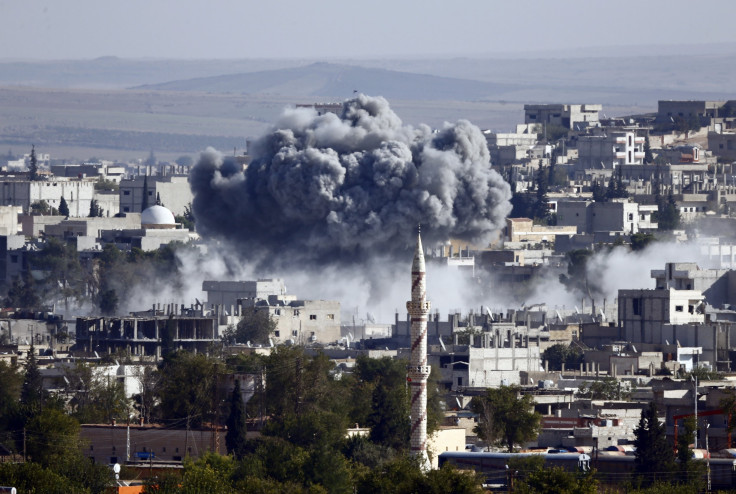ISIS Update: Airstrikes In Syria Kill Over 500 Militants, Iraqi Kurds Will Send Peshmerga To Kobani

U.S. airstrikes have killed 521 militants and 32 civilians since they began a month ago, according to the Britain-based Syrian Observatory for Human Rights. The SOHR said 464 of those militants are part of the Islamic State group, who the U.S. is actively targeting in Syria. The other 57 are part of Jabhat al-Nusra, al Qaeda’s Syrian affiliate. The 32 civilians include six children and five women.
The observatory group believes casualties amongst Islamic State group ranks are higher, but those figures cannot be confirmed because of “the extreme secrecy” the Islamist group maintains over casualties and the difficulty reaching areas controlled by the group. Rami Abdel Rahman, the director of the observatory, told AFP that the “vast majority” of militants killed by the airstrikes were foreign fighters who came to the country to join one of the two Islamist groups.
Along with bombs, the U.S. has dropped several tons of medical and lethal supplies to Kurdish fighters in Syria. One of those drops fell into the hands of Islamic State group militants, the Pentagon admitted on Wednesday after a video surfaced showing militants from the group rifling through U.S. supplies. The Pentagon said wind blew that drop and another off course, but they were able to destroy the second missed drop with an airstrike before it could be recovered by the militants also known as ISIS and ISIL.
The U.S. and a coalition of Arab nations have carried out over 200 airstrikes in Syria since Sept. 22, according to Voice of America. Those airstrikes and supply drops have lately been concentrated around Kobani, a town along the Syria-Turkey border. Islamic State fighters made a massive offensive push to capture the town earlier this month. Kurdish fighters were on the verge of losing the town, but U.S. support has bolstered their defense.
Turkey agreed to let Iraqi Kurds cross the border into Syria and support Kobani’s Kurdish defenders on Monday, breaking Turkey’s controversial reluctance to work with any Kurdish group because of their own history of conflict with the minority ethnic group. Kurdish lawmakers in Iraq agreed to send those Peshmerga forces to Kobani on Wednesday.
The CIA estimated that the Islamic State group consisted of 20,000 to 31,500 fighters across Syria and Iraq in mid-September. The group’s declaration of an Islamic caliphate and victories up to that point led to an increase in recruitment.
© Copyright IBTimes 2025. All rights reserved.






















